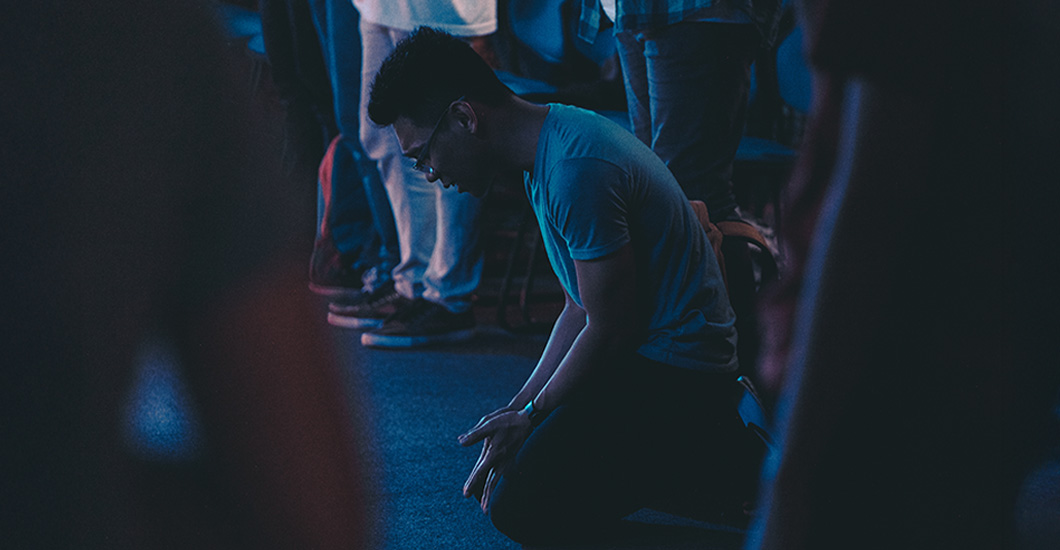Trending Articles
How to Walk Your Child Toward God
When a child seeks the comfort of a parent he serves and is viewed as the natural destination point in a child’s heart and mind. If something goes wrong or the child feels misplaced, he will seek his parents out for reassurance, comfort and help. One of the main reasons a child would naturally go to his parents other than the fact that they are his parents is that the child has recognized that mom and dad have helped him cope with the daily challenges of life especially as he grows in physical, mental and spiritual maturity.
As children created in His image and likeness we are naturally in a constant state of journeying toward God, even if we ignore this very fact. As parents it is important that we are keenly aware of this because our role is to help our children know and recognize who God is by our witness of faith toward Him. This visible reality is very important because the intent is to help our children see and begin to understand the importance of seeking a relationship with our Lord. If an opportunity is genuinely established to seek God, then the nature of who God is as our Father in Heaven—who is all-powerful, all-knowing, omnipotent—does not appear that difficult to understand. The child thus begins to know and understand who God is because he sees his parent’s actively walking with God and including him on this journey through a daily practice of the faith, especially in the active participation of the holy sacrifice of the Mass that serves as “the source and summit of the Christian life” [CCC 1324].
A Journey Toward God
When I speak of the term “journey” in relation to God, the “Catechism” provides us with a clear and precise explanation in the following way: “The universe was created in a state of journeying toward an ultimate perfection yet to be attained, to which God has destined it” (CCC 302). Taking this definition a step further, Jesus asks for childlike abandonment to the providence of our heavenly Father, who takes care of His children’s smallest needs (CCC 305). This means that our duty as parents is to provide the visible and tangible realities of God’s existence and Divine Providence within the daily structure of life.
God, who creates and conserves all things by His Word, provides men with constant evidence of Himself in created realities. Furthermore, wishing to open up the way to heavenly salvation, He manifested Himself to our first parents from the very beginning.” He invited them to intimate communion with himself and clothed them with resplendent grace and justice (CCC 54).
Saint Paul, in his second letter to Saint Timothy, tells him to follow the pattern of the sound words which you have heard from me, in the faith and love which are in Christ Jesus; guard the truth that has been entrusted to you by the Holy Spirit who dwells within us (1:13-14). Part of the task of leading our children to God is how we project our own faith in word and deed. If we express the Catholic faith as a chore, then our children will embrace a similar attitude to the point of making it part of their character. On the opposite end of the spectrum, if we as parents express our faith with a prudent and charitable attitude—intimately desiring a relationship with Jesus Christ and His church—then our children would hopefully embrace this Christian attitude and then adopt it as part of their character.
Practically Speaking
There are many practical ways a parent can walk his child toward God. The first and most important practical step you can take with your child is to be a visible instrument of prayer where your son or daughter actually sees and hears you praying to Christ. This initial witness of faith is probably the most important because it sets the stage for everything else you want your child to learn about his faith. In prayer the child begins to see that there is a direct correlation between faith and prayer. This formula becomes the seed bed toward living out the sacramental life in word and deed. Thus, nightly family prayers, praying and blessing your children at night before they go to bed, prayer before meals and praying for others in need sets the stage for their journey.
A second practical step to consider is to create a sacred space, i.e. a prayer space in your home. This typically consists of placing a Bible in a highly visible area where you reflect on the Word of God as a family at least two to three days a week, preferably every day.
This leads to a third practical step; introducing the lives of the Saints. The Christian witness of the Saints can only strengthen the journey and give our children further hope that it is not impossible to have a relationship with our Lord and walk with Him.
A fourth and final practical step is allotting time to receive the Sacraments, especially Confession and Holy Communion. The sacramental life is rooted in Christ, in order to genuinely love Christ and His Church we must actively engage the gifts of grace we have received in the sacraments themselves. In Baptism we enter in the Kingdom of God. It is important to remind our children of this as much as possible, even to the point of celebrating the day of their baptism as we would celebrate their actual birthday.
As you can see there are various ways we can lead our children toward God. Ultimately our role and function as parents is to lead our children to heaven, hence our walk to and with God. Saint Augustine, one of the greatest saints and Doctors of the Church, gives us, through a description of his intimate participation in the Mass, a small taste of what it means to walk with God:
“How I wept, deeply moved by your hymns, songs and the voices that echoed through your Church! What emotion I experienced through your Church! What emotion I experienced in them! Those sounds flowed into my ears, distilling the truth in my heart. A feeling of devotion surged within me, and tears streamed down my face tears that did me good” (Confessions, 9, 6, 14; “CCC” 1157).
Marlon De La Torre serves as the Department Director of Evangelization and Catechesis for the Catholic Diocese of Fort Worth. His professional catechetical background spans more than 19 years. Most important for him is his primary catechetical ministry—his family! Happily married to his wife Amy for nearly 18 years, he is blessed with four wonderful children, Miguel, Gabriella, Maria and Gianna. Originally published in www.knowingisdoing.org. Reprinted with permission.
Latest Articles
Want to be in the loop?
Get the latest updates from Tidings!








